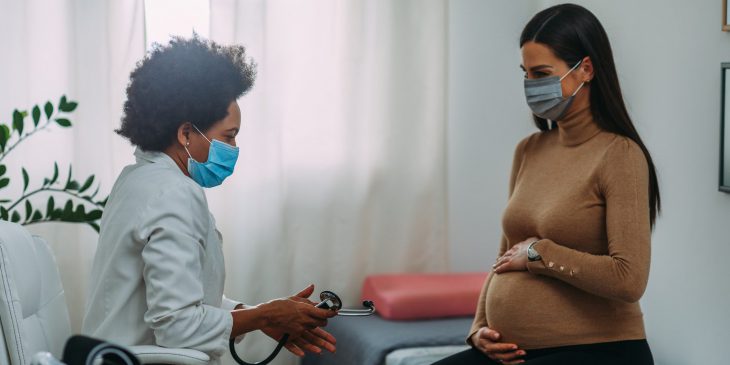As Black obstetrician-gynecologists, midwives and members of the UPMC family, we have come together to highlight the current state of affairs for pregnant women of color. The U.S., a developed nation, has one of the highest maternal mortality rates in the world, with Black women affected disproportionately in comparison with other races. Bringing awareness of this disparity is important to us because we are caregivers, mothers, partners, daughters, friends and confidants to many Black women.
Dedicated to addressing disparities and inequity in health care, UPMC extends services that meet the many different needs of our unique and diverse communities in all of the broad regions we serve throughout western and central Pennsylvania. UPMC provides expertise at UPMC Magee, UPMC Hamot, UPMC Altoona, UPMC Pinnacle and UPMC Williamsport. We are proud that UPMC is showing its commitment to eliminating racism, bias and inequalities in maternal health care by collaborating across our vast health care system, with national and local organizations, and by strongly participating in Black Maternal Health Week, April 11-17.
UPMC is focused on these health disparities for more than just one week. We are working together every day to make positive change for our patients. We will continue our innovative research and clinical work, day in and day out to better understand why these disparities exist and address them head on.
We are honored to support the Black Mamas Matter Alliance through advocacy during Black Maternal Health Week, and as an organization, UPMC is sponsoring Brown Mamas Matter in its Pittsburgh-based educational and wellness activities for Black and Brown women. These organizations advocate and for Black maternal health, rights and justice. In addition, UPMC was the first large-scale health care organization to sponsor Patients R Waiting, a Lancaster-based nonprofit organization devoted to eliminating health disparities by increasing diversity in medicine and with its Diversifying Doulas initiative aimed at decreasing maternal morbidity and mortality. Also, cardiovascular disease is the primary cause of maternal mortality and UPMC Magee created a blood pressure home-monitoring program to rapidly detect concerning trends in postpartum women before their situation becomes critical. We are working hard at expanding this program to all the communities we serve.
The maternal death rate is three to four times higher among Black women even when we compare people of similar education level, health and socioeconomic background. Health disparities that affect Black and Brown communities exist due to many factors. Social determinants of health including lack of access to affordable health care, food deserts, substandard housing and lack of transportation, play a significant role in disproportionate care for people of color.
As members of the UPMC family and experts in women’s health, we are proud that our organization is taking deliberate action to eliminate health disparities and dismantle systemic racism. We understand that until we address the structured processes that enable racism to exist, health disparities will continue to persist.
Sharee Livingston, D.O., UPMC Lititz
Ayodeji Bakare, M.D., UPMC Pinnacle Harrisburg Medical Staff
Draion Burch, D.O., UPMC Altoona
Latima Collins, M.D., UPMC Magee-Womens Hospital
Carlos Cream, M.D., UPMC Pinnacle
Chavone Dantrell Momon-Nelson, M.D., UPMC Carlisle
Christopher Harvey, M.D., UPMC Hamot
Candace Jones, D.N.P, C.N.M., A.M.C.B., UPMC Pinnacle
Veniese Lawrence C.N.M., C.R.N.P., UPMC Williamsport
Ciara Shank, C.N.M., UPMC Pinnacle
Amaris Yandel, D.O., UPMC Magee-Womens Hospital








